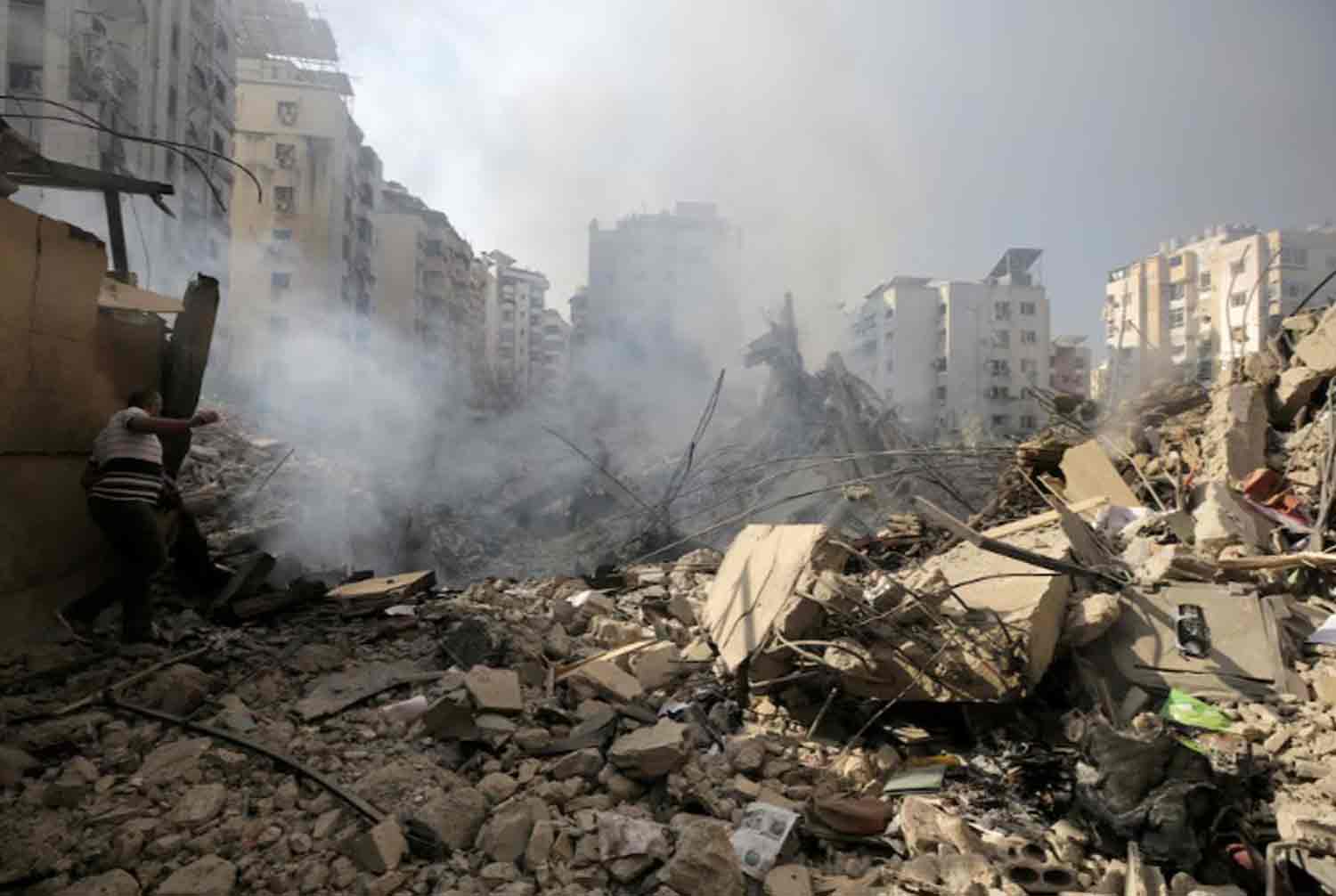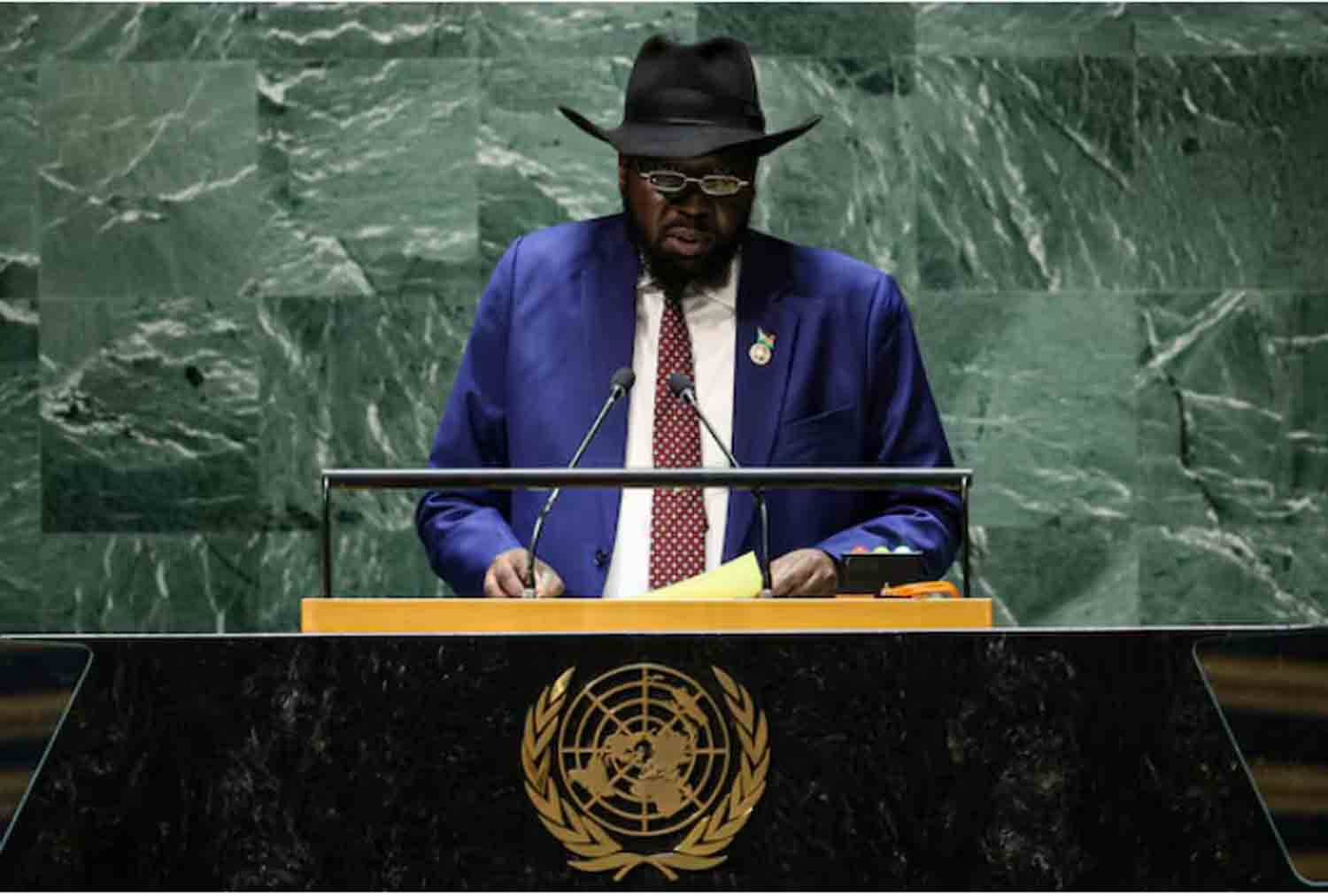Israel’s military announced the elimination of 15 Hezbollah militants in southern Lebanon on Thursday, while Iranian President Masoud Pezeshkian cautioned against remaining “silent” in response to Israel‘s “warmongering,”. The strikes were reported to have targeted a municipal building in the town of Bint Jbeil, where the militants were believed to be operating.
In response, the Hezbollah-affiliated Islamic Health Authority reported that seven of its personnel, including two medical staff, lost their lives in the airstrike on Beirut.
Israel characterized the operation as a precise airstrike on the Lebanese capital. Witnesses reported a significant explosion, with a security source indicating that the target was a building in the Bachoura district, close to the parliament, marking the nearest Israeli strike to Beirut’s central downtown area.
According to Lebanese health officials, at least six individuals were killed and seven others injured. A photo circulating on Lebanese WhatsApp groups, which Reuters has not yet verified, depicted a severely damaged building with flames engulfing its first floor.
Another restless night in Beirut. The city trembles with the sound of explosions. There are no warning sirens. The future remains uncertain, filled with anxiety and fear, as expressed by U.N. special coordinator in Lebanon, Jeanine Hennis-Plasschaert, on X this Thursday.
Following Iran’s launch of over 180 missiles into Israel, Israel reported on Wednesday that eight soldiers lost their lives in ground combat in southern Lebanon as its military advanced into the northern neighbor.
Iran announced on Wednesday that its missile barrage—its largest assault on Israel to date—had concluded, unless provoked further, while both Israel and the United States vowed to retaliate forcefully.
Qatar’s Emir Sheikh Tamim bin Hamad Al-Thani urged for serious efforts towards a ceasefire to halt Israel’s “aggression” in Lebanon, asserting that lasting peace in the Middle East hinges on the establishment of a Palestinian state. He described the ongoing situation in the region as a “collective genocide” during the Asia Cooperation Dialogue summit in Doha, reiterating his country’s long-standing warnings about Israel’s “impunity.”
At the same summit, Iranian President Masoud Pezeshkian cautioned against remaining “silent” in response to Israel’s “warmongering,” stating, “Any military attack, terrorist act, or violation of our red lines will provoke a decisive response from our armed forces.”
Additionally, three Israeli missiles struck the southern suburb of Dahiyeh, where Hezbollah leader Hassan Nasrallah was killed last week, with loud explosions reported by Lebanese security officials.
HOUTHIS ATTACK TEL AVIV
The removal of Nasrallah significantly weakened Hezbollah, which he had transformed into Lebanon’s most powerful military and political entity, extending its influence throughout the Middle East and eliminating Iran’s most formidable proxy. In response to the ongoing conflict between Hamas and Israel in Gaza, Hezbollah, along with Iran’s other regional allies, including Yemen’s Houthis and various armed factions in Iraq, has initiated attacks across the region.
The Houthis have been actively targeting commercial vessels linked to Israeli, U.S., and UK interests since last year, employing missiles, armed drones, and explosive-laden boats. Recently, they claimed to have successfully struck Israel’s commercial hub, Tel Aviv, using drones. In response, Israel reported intercepting a suspicious aerial object in central Israel early Thursday morning.
The Israel Defense Forces (IDF) have advised residents of evacuated Lebanese villages to refrain from returning until further notice. “IDF operations are ongoing,” stated spokesperson Avichay Adraee on X on Thursday. According to Lebanese government figures, over 1,900 individuals have lost their lives and more than 9,000 have been injured in Lebanon due to nearly a year of cross-border hostilities, with the majority of casualties occurring in the last two weeks. Caretaker Prime Minister Najib Mikati noted that approximately 1.2 million Lebanese have been displaced as a result of Israeli assaults.
Over 300 individuals who have been displaced are currently seeking refuge in a nightclub in Beirut, a venue previously renowned for its extravagant parties. Staff members are now utilizing their guest-list clipboards to register those in need of shelter.
“We’re striving to remain resilient,” stated Gaelle Irani, formerly responsible for guest relations, as she took a moment to assist individuals in finding a place to stay. “It’s incredibly overwhelming and heartbreaking. This venue, which once served as a space for enjoyment, has transformed into a shelter, and we are committed to doing everything possible to support and assist those affected.”
On Wednesday, the Israeli military announced the involvement of regular infantry and armored units in ground operations in Lebanon. This development, alongside Iran’s missile strikes and Israel’s vow of retaliation, has heightened fears of a broader conflict in the oil-rich Middle East.
The inclusion of infantry and armored forces from the 36th Division, such as the Golani Brigade, the 188th Armored Brigade, and the 6th Infantry Brigade, suggests that the military operation is expanding beyond limited commando actions.
In response to the recent escalation on Tuesday, Western nations have begun formulating contingency plans to evacuate their citizens from Lebanon. However, no large-scale military evacuations have been initiated yet, although some countries are arranging charter flights as Beirut airport remains operational.
Discover more from Defence Talks | Defense News Hub, Military Updates, Security Insights
Subscribe to get the latest posts sent to your email.





